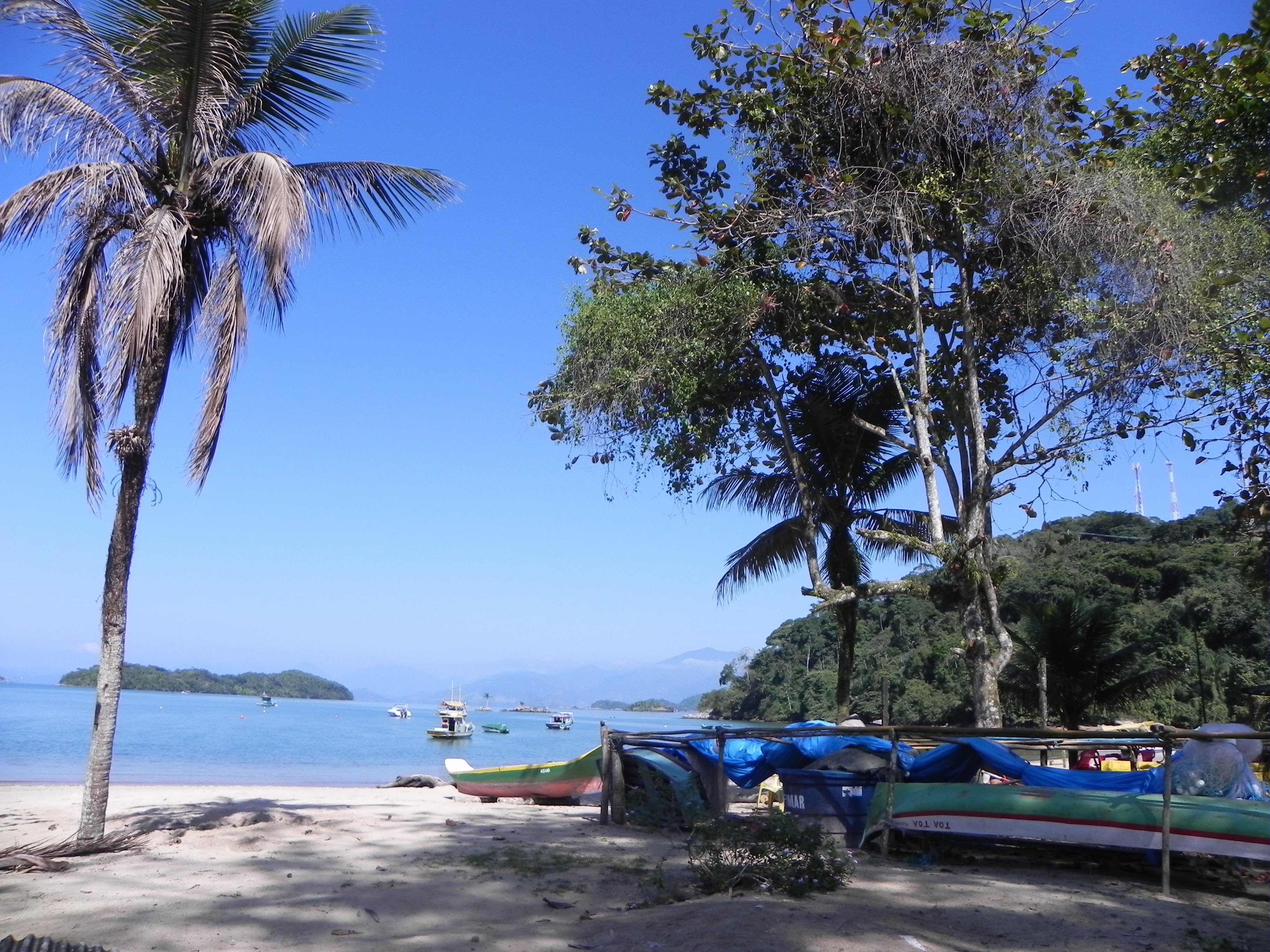
16 Mar Ana Carolina Esteves Dias – Tarituba, Brazil
“In the Spotlight” is a series of interviews that takes a closer look at the work of CCRN students and their research. Read more to learn about our students’ research and the communities they work with.
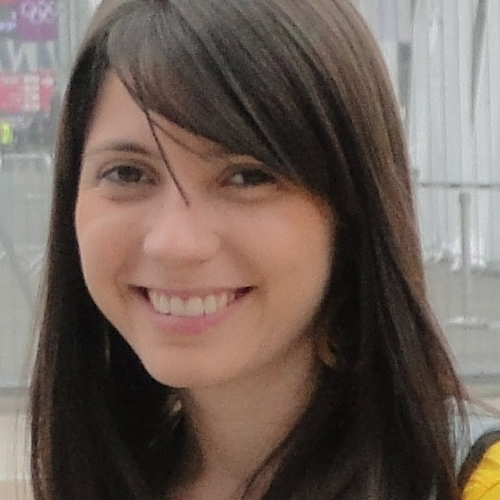
PhD Candidate Ana Carolina Esteves Dias completed her CCRN sponsored master’s degree under Cristiana Seixas at the State University of Campinas, Brazil
“I have always been curious about how humans interact with nature, especially in the coastal zone” says CCRN graduate student, Ana Carolina Esteves Dias. “Since I was a child, I have been fascinated by the oceans and all the colors and forms that compose coastal land and waterscapes.” Ana Carolina aims to understand how we as humans can “reconcile our livelihoods with natural dynamics and other living beings that can benefit us as a source of food, shelter, joy or spiritual values”. Through her master’s thesis, supervised by CCRN member Cristiana Seixas, Ana Carolina addressed two key issues associated with conservation in coastal environments, specifically the implementation of conservation practices without first contacting local communities, and the development of a participatory monitoring program to reveal ecological dynamics of fishing resources and the impact these conservation zones can have on the livelihoods of the local communities who depend upon them. The CCRN network has helped Ana Carolina learn about other studies and experiences in the same research field. This knowledge assisted in understanding her own case study and delve deeper into the discussion on the importance of local communities in conservation. She is now a PhD candidate in Social and Ecological Sustainability at the University of Waterloo, Canada, under the supervision of CCRN member Derek Armitage.
Continue reading to learn more about Ana Carolina’s thesis “Fisheries participatory monitoring at Tarituba community, Paraty (Brazil): reconciling conservation and small-scale fisheries,” and the insights Ana Carolina gained while completing her master’s degree. The interview is also available in audio format, click play on the recording below to listen to Ana Carolina’s Interview.
Click play to listen to Ana Carolina’s Student Research in Community Conservation
What excites you about the work you did for your thesis?
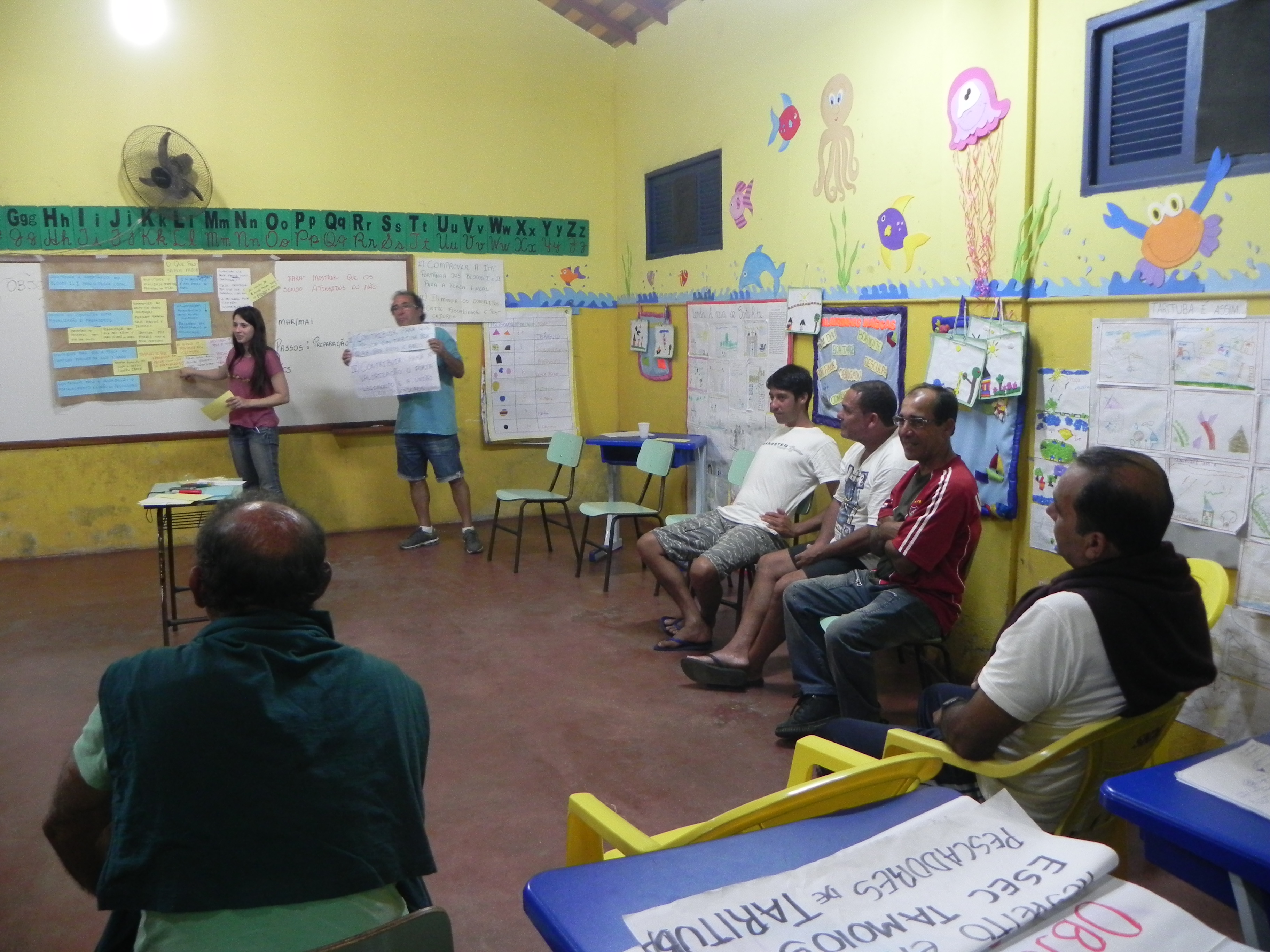
Workshop with fishers, managers and other institutions related to fisheries management, Working together to design the monitoring programs and set collective goals.
I got pretty excited about my masters research, since it would contribute to a real world problem. During my thesis, I contributed to the development of a participatory monitoring program of small-scale fisheries of a coastal community, whose livelihoods strongly depend on fishing. I was happy to reconcile conservation of fishing resources with local dependence on those resources. It was pleasant to identify together with fishers and managers a way to understand both social and ecological importance of the coastal environment and discuss the importance of that with those actors. Also, my thesis was a pilot project for a new method to monitor social and ecological aspects of coastal environments, the Global Socioeconomic Monitoring Initiative for Coastal Management (SocMon). This method was implemented in more than 30 coastal countries and is in test in Brazil.
Did you run into any difficulties during your studies? If so, how did you address them?
Yes, one of the main difficulties was having access to public data compiled by the government. A partnership between the agency responsible for fisheries management at the state level (Rio de Janeiro state) and the Secretary of Fisheries of Paraty, maintained a point of collecting data on fishing in Tarituba, the community where I did my masters. Although this data is supposed to be public, when I requested the data (multiple times), these institutions did not make it available. Officials of the Paraty Fisheries Secretariat mentioned that the data is collected, but it is processed slowly. I ended up without this data, even though I requested it several times during my research (Between 2013 and 2015).
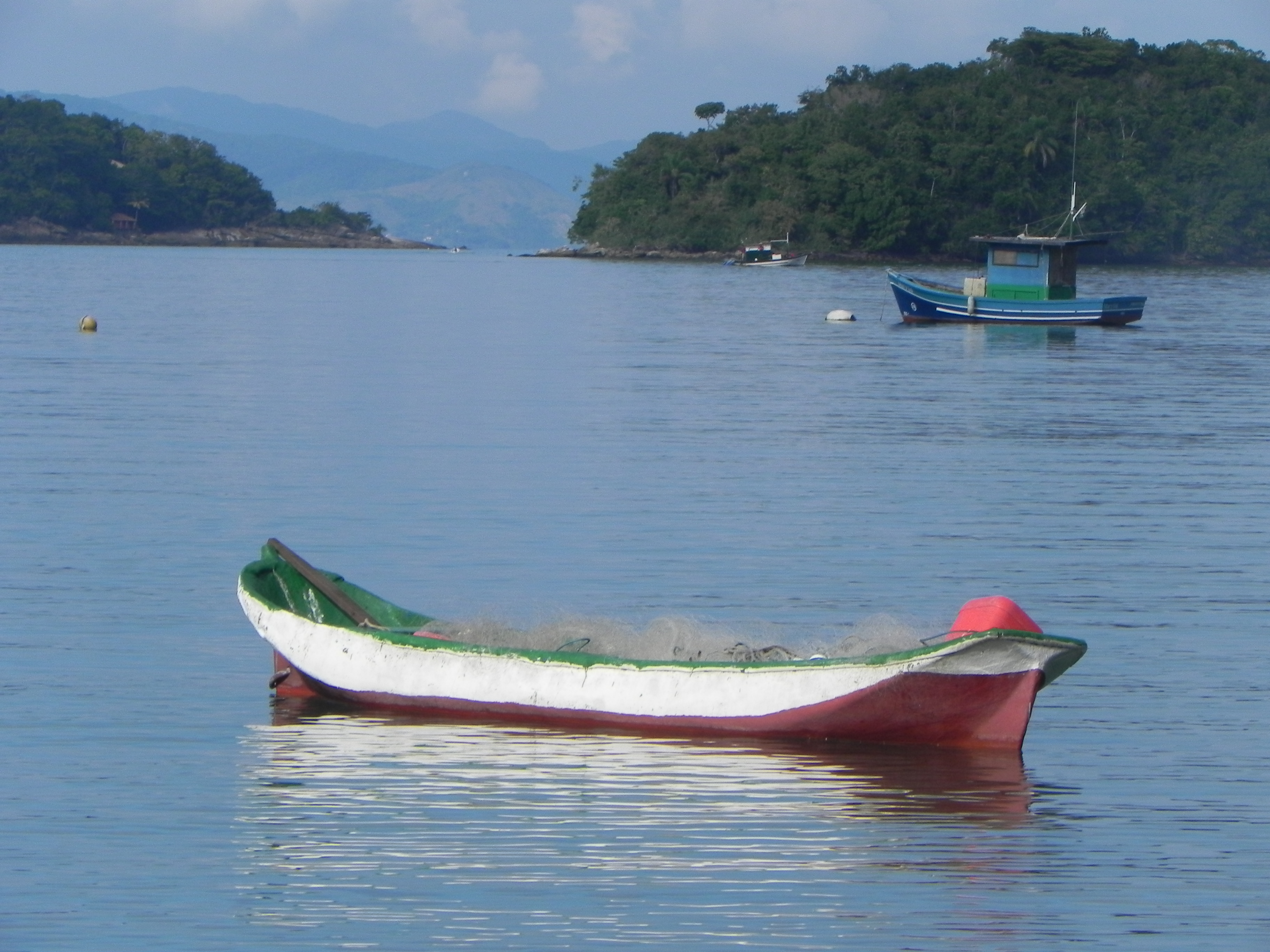
Canoe used in small-scale fishing with waiting net inside
In addition, Eletronuclear, the nuclear power plant located in the surroundings of Tarituba Community, conducts a monitoring program, collecting biological samples in the marine areas close to the community. When I requested this data the manager of Tamoios Protected Area provided me with a CD-room with raw data collected by the company. However, this data was not up to date. In 2016, at the XXXV meeting Of the Advisory Council of Tamois Protected Area, Eletronuclear stated that they are changing their monitoring program. Nevertheless, when questioned about how data would be communicated to the public, the company representative stated that he did not have a plan to make the outcomes of the monitoring program available.
I had to work without this data, having access only to academic references.
How does your research affect the community you worked with?
This research contributed to discussions about real concerns and interests related to the conservation and livelihoods of extractive communities that depend directly on natural resources to maintain their livelihoods. This research also recognized the effort of fishermen towards the conservation of fishing areas. Apart from that, we developed together (with fishers and managers) a monitoring program able to capture the importance of local fisheries to the community and the influence of fishing to the coastal environment. This work will contribute to a better management of the marine areas surrounding the community.
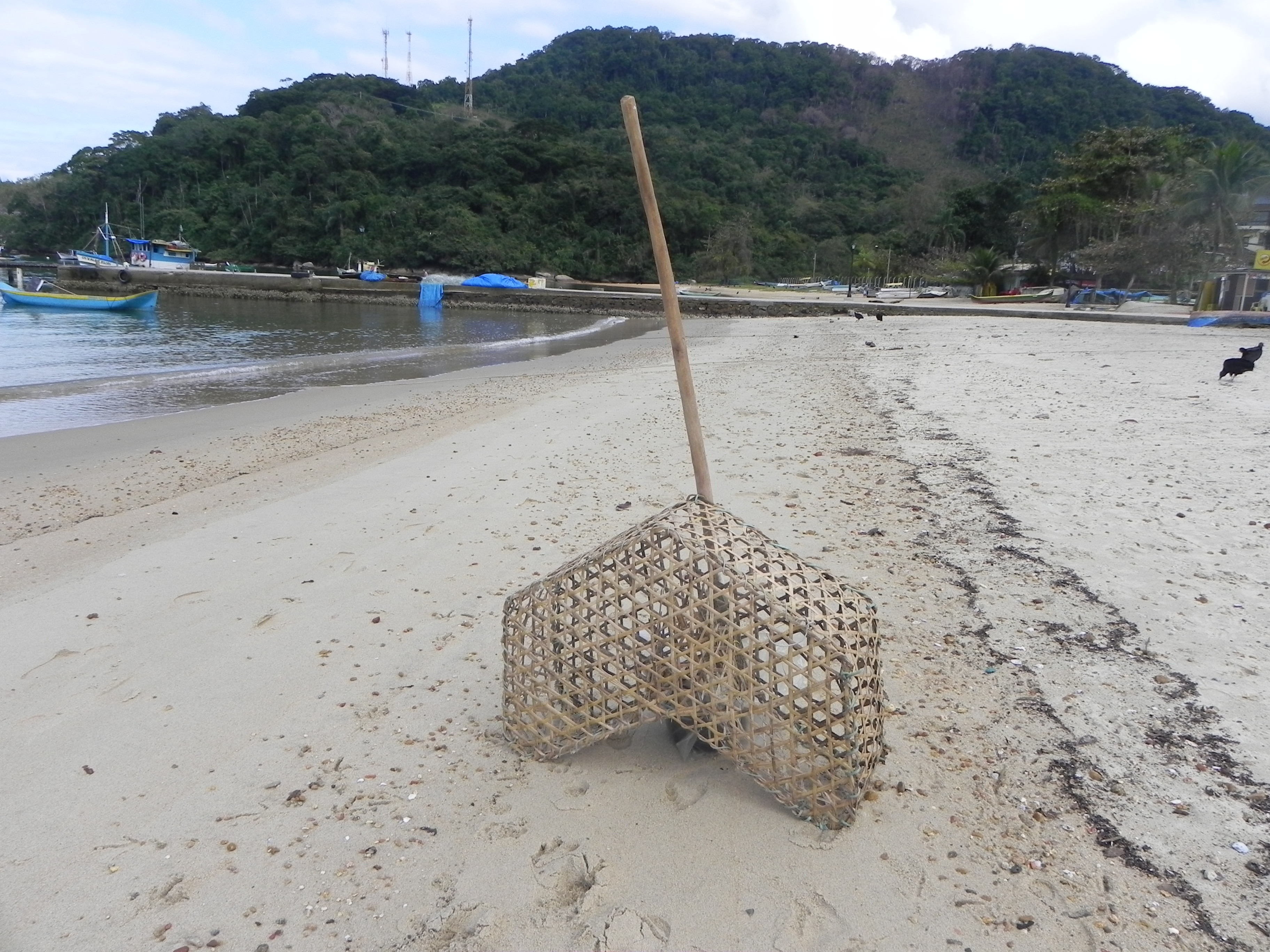
Fishing gear for catching crab
What do you think are the next steps for learning more about the topics you addressed in your thesis?
Based on my conclusions, one relevant question that arises is: what are the formal and informal institutional mechanisms that favor knowledge co-production related to the various spheres of a socio-ecological system, focusing on the collective redefinition of the conservation strategies in progress towards sustainable management practices?
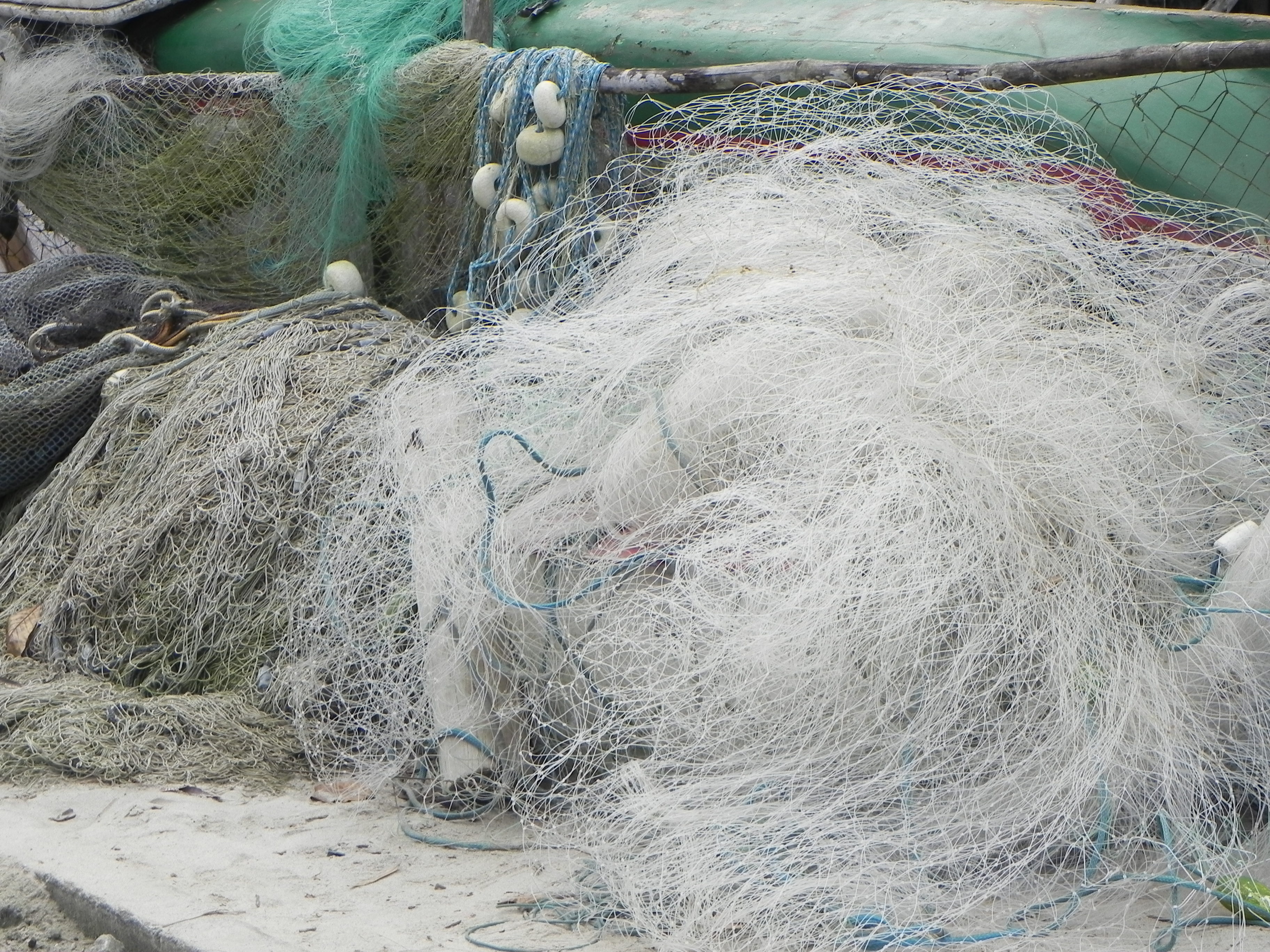
Fishing nets
How does your research contribute to your field?
Insights on participation: Although there are tools and methods to develop and implement monitoring programs by various stakeholders, there is a lack of policy tools and political will to put them into practice. The lack of institutional will of the Brazilian government to conduct participatory management processes, which considers the users of natural resources themselves as protagonists in monitoring, makes it difficult to engage users. Advancing the sustainability of protected areas requires building trust, which is often deconstructed. In the case of Tarituba, the monitoring program was drawn up jointly by the efforts of local fishermen, managers of Tamoios Protected Area and other Institutions, however, the participants feel discouraged to continue participating in management processes led by the government due to lack of response from the federal government.
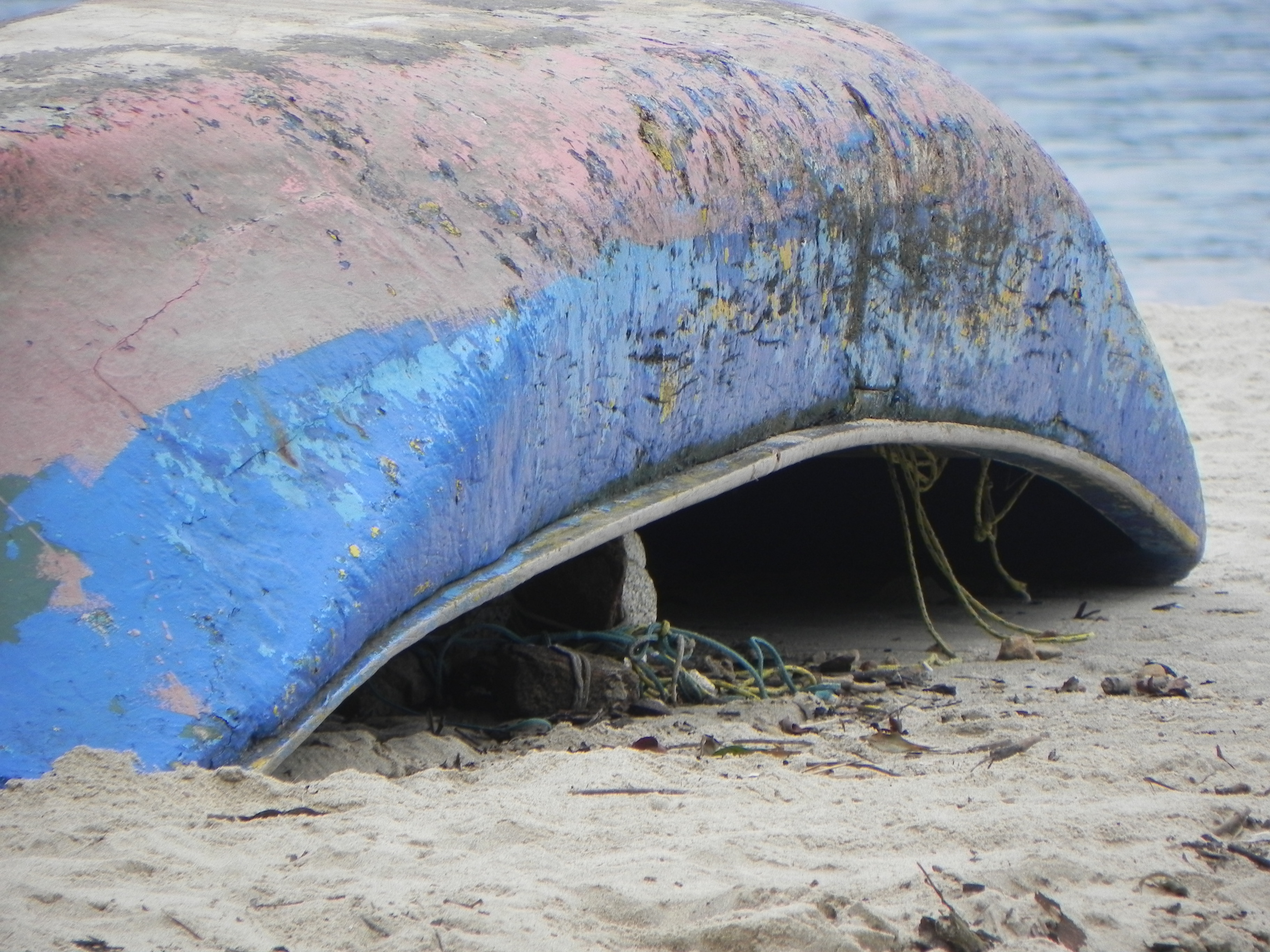
Canoe when not in use
In addition, the implementation of a participatory monitoring approach is not sufficient for the effective incorporation of fishers’ knowledge into management. There is a need to recognize the advantages of using fishers’ knowledge in a broad range of small-scale fisheries management issues, beyond the design of data collection programs. In addition, indicators and knowledge about all spheres of the fisheries social-ecological systems are essential for the advance of the Ecosystem Approach to Fisheries. We identified the need for an emphasis on the monitoring step of management, under interdisciplinary and participatory approaches that favor the sharing of knowledge and power. Special attention should be given when discussing challenging management issues, where a co-production of knowledge can provide better understanding of local dynamics. Nevertheless, despite the many challenges faced in the monitoring of small-scale fisheries, marked by advances and setbacks, Brazil and the Southern Cone are encouraging the participation of users, with significant support from universities, other research institutions, and NGOs.
Evaluating the SocMon method to the Brazilian context: In developing this monitoring program, I have been able to confirm that the SocMon method allows you to tailor the monitoring to the local context. The application of the method should also emphasize the importance of process continuity and help participants think about how monitoring will be conducted overtime. The partnership with the Brazilian government in the Brazilian initiative is an advance in the application of SocMon. Even so, it is necessary to be careful, avoiding interfering in the participation of fishermen and coastal communities in designing monitoring and using the information provided.
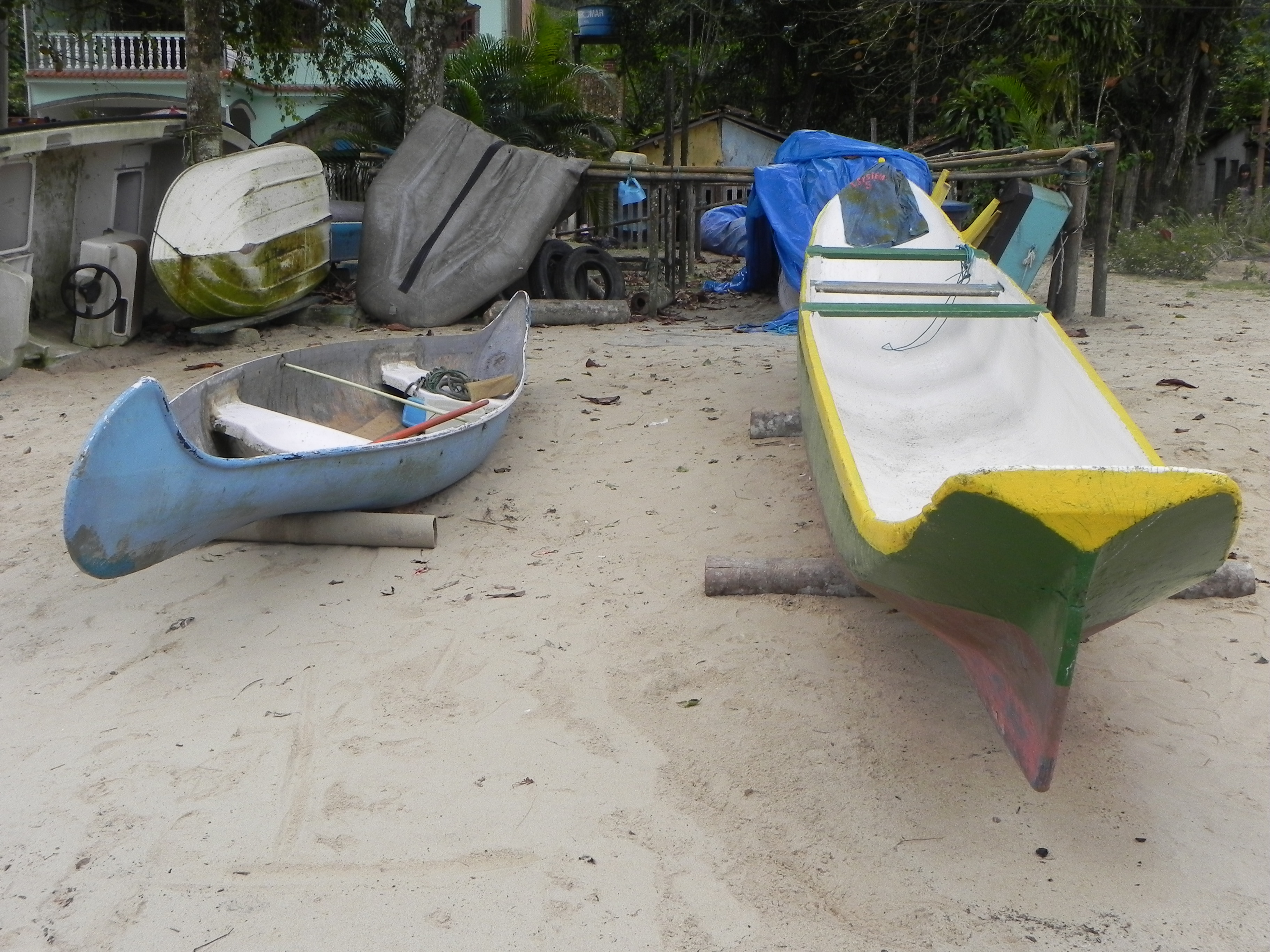
Different types of canoes at the beach
Browse Ana Carolina’s publications to learn more about her work in coastal communities
2016 Araujo, L. G., Dias, A. C. E., Prado, D. S. and Seixas, C. S. (Eds). Caiçaras and rural communities: an essay about nature, culture and development. Seven years of research and outreach. Campinas: University of Campinas.
2015 Dias, A. C. E. Mobilizing knowledge about conservation nature and sustainable development units conservation in Paraty. In: Bahia, N., Bokstael, E. and Seixas, C. (eds). Community-based management of natural resources and food security in Paraty (Brazil). Booklet, University of Campinas and University of Manitoba.
2015 Dias, A. C. E. Fisheries participatory monitoring at Tarituba community, Paraty (Brazil): Reconciling conservation and small-scale fisheries. Masters Dissertation, State University of Campinas, Brazil. 188p.
2015 Seixas, C. S.; Islas, C. A.; Dias, A. C. E. Protected Areas in Paraty Bay, Brazil: Two Caiçara communities contribute to fisheries and terrestrial biodiversity conservation.
2014 Seixas, C. S., De Freitas, R.R., Dias, A.C.E., Araujo, L.G., Trimble, M. Contributions based on scientific research for the artisanal fishing authorization process in Tamoios Ecological Station). Manuscript sent to the Federal Public Ministry and to the Ministry of Environment (Brazil).
Accepted Bavinck, M., Berkes, F., Charles, A., Dias, A.C.E., Doubleday, N., Nayak, P. and Sowman, M. The impact of coastal grabbing on community conservation – a global reconnaissance (accepted by the Journal of Maritime Studies – MAST).


